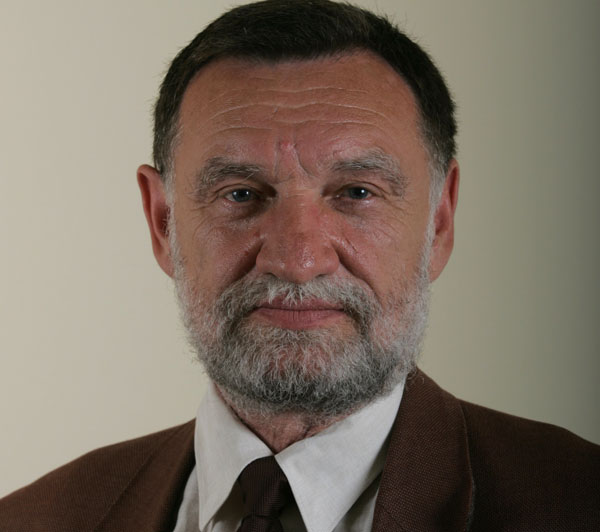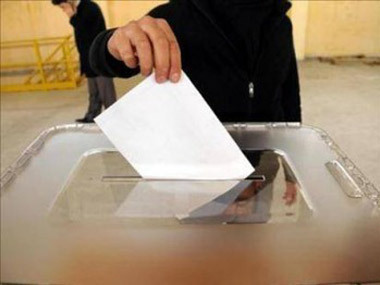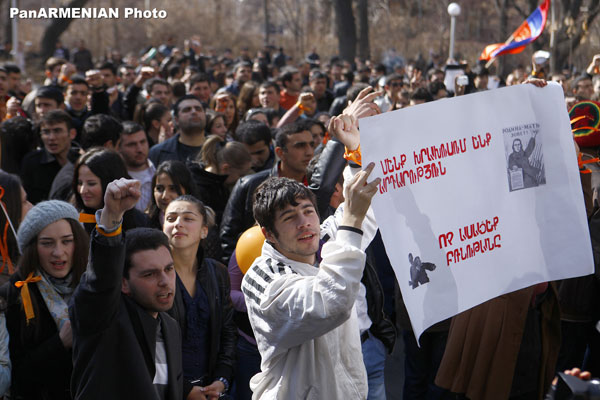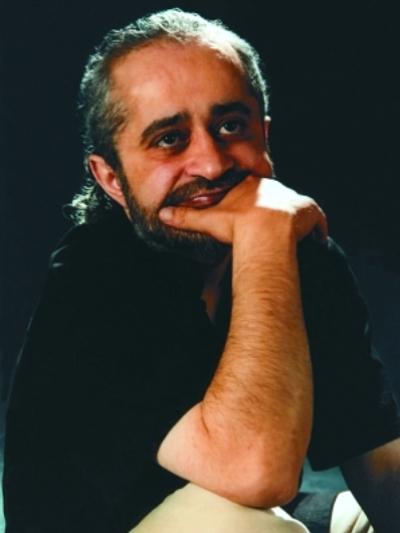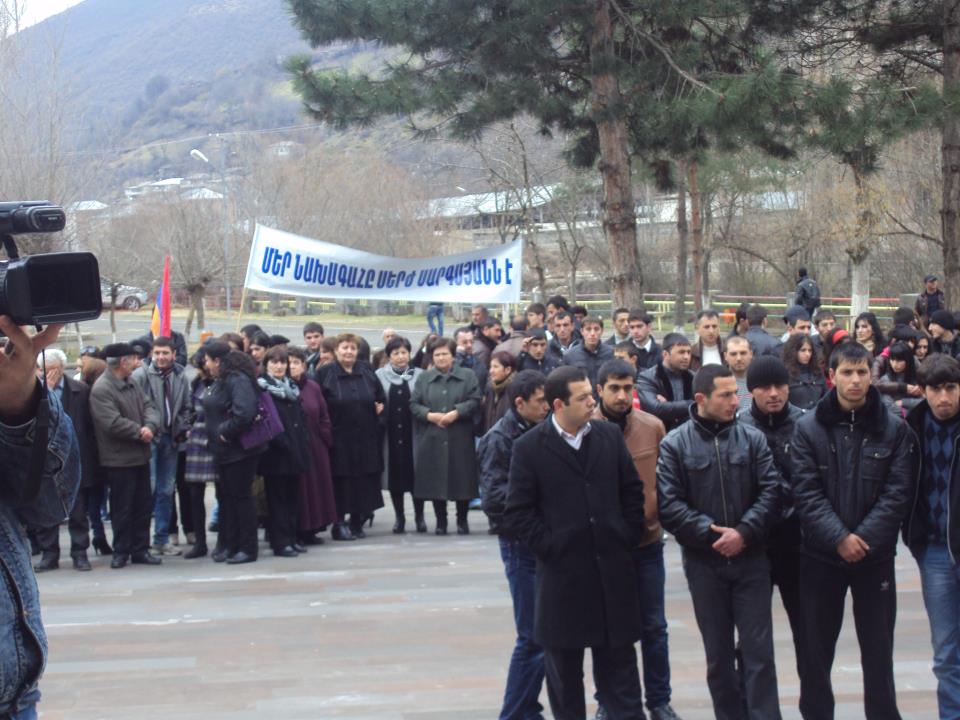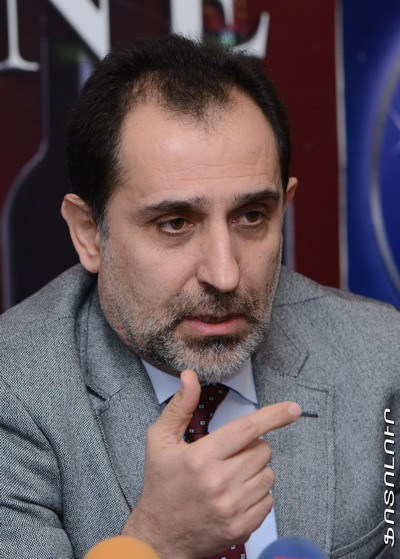According to Ivlian Haindrava, a Georgian expert, the mutually beneficial relations will be enhanced before long.
* In response to a question how he would describe the Armenia-Georgia relations, what prospects he saw, Bidzina Ivanishvili, the Georgian Prime Minister, said in an exclusive interview given to Radio Liberty during his official visit to Armenia last week that Armenia and Georgia currently had very good relations, and those age-long relations would be “ideal, even exemplary” in the future. Mr. Haindrava, first of all, how can you describe the Georgian Prime Minister’s visit to Yerevan?
* The mentioned visit can be described as rather successful, and publications in the Armenian press also testify to that. On a personal level, it is particularly important to build relations based on trust, and the leaders of our countries managed to do that. Since Mr. Ivanishvili is known as a man of action, one can hope that the mutually beneficial relations will be enhanced before long. If only those who are actually idle don’t put a spoke in the wheel of that process, and our societies calmly, it would be desirable, negatively respond to irrational or just provocative statements of those figures.
* Mikheil Saakashvili, the President of Georgia, said on January 17 that he was against putting the Abkhazian railway into operation again, criticizing the statement made by the Georgian Prime Minister in Yerevan, stating that putting the railway into operation again was mostly in Russia’s interest, and mentioning that issue without freeing the territories is a criminal, anti-state and anti-Georgian action. Whereas earlier in the day, Georgian Prime Minister Ivanishvili said in Yerevan that putting the Abkhazian railway into operation again was “possible.” Ivanishvili stated that the
issue could be solved, if all parties showed willingness. Mr. Haindrava, how should one understand these contradictory positions of the Georgian government?
* These are not contradictory positions taken by the Georgian government, if we take into account that Ivanishvili’s government carries out the policy, and Saakashvili tries to sabotage that policy, besmirch and blacken as much as he can. I think railways unite, not divide, besides the economic effect. And opposing the Abkhazian railway to the Akhalkalak-Kars railway is not right.
Each of them has its function and should literally have its burden. By the way, the railway contributes to economic growth throughout its entire route, and if we honestly wish to improve the socio-economic situation in Javakhk, this factor should also be paid attention to. And in the end, a turnaround in the Armenia-Turkey relations is not expected soon; not only the Abkhazian railway, but also the Akhalkalak-Kars railway can be in Armenia’s interest.
* A day after the Georgian Prime Minister’s visit to Armenia, Alexander Ankvab, the President of Abkhazia, stated that no one had requested to put the Abkhazian railway into operation again; if there was such a proposal, “we will discuss it together.” Can this statement be considered as a sign that Russia has taken a softer line?
* Sukhumi responded negatively to the first statement of the new government of Georgia that it was ready to discuss the reopening of the Abkhazian railway, and that response absolutely fits in with the current policy of the Abkhazian government, i.e. the formula “Nothing, except recognition.” However, the political weakness of such an approach, particularly against the background of the new Georgian government’s position “Everything, except recognition,” is obvious. That is why Mr. Ankvab has softened his line, which is not characteristic of him, by the way. Possibly or even probably, the signals from Moscow that one needed to think about that issue contributed to that. So one cannot solve one problem and contribute to creating another, let alone several others. Nonetheless, I think one can find such a solution to the problem that will be in everybody’s interest. Generally, it is the time for all parties in the South Caucasus to give up on the zero-sum game and start to look for solutions based on mutual interest.
* In response to a question whether Tbilisi would change its foreign priorities, Ivanishvili said in Yerevan that it was unlikely and added: “We have talked about our priorities a lot that it is Europe, NATO; we will persist with that policy. However, a question arises whether we can combine, restore relations with the Russian Federation, make them friendly and at the same time, have good relations with NATO, enhance the relations with NATO, have good relations with the US and other member states of NATO. I think that Armenia is a good example of that, and Armenia
can be a role model for Georgia. Armenia has good relations with the Russian Federation, and at the same time, it has good relation with the US and other member states of NATO. Therefore, all that is possible, and I think we just have to do that, and I believe we will do it.” How will you comment on these words, which were also strongly criticized in Georgia?
* I think that it is the main challenge facing the new Georgian government. And here one shouldn’t expect easy solutions. Naturally, Saakashvili has already unleashed a barrage of criticism on Ivanishvili, because the latter mentioned Armenia as an example of having constructive relations with both NATO and the Russian Federation at the same time. By the way, the moment of truth for Armenia is approaching, either the Customs Union or the European Union.
However, there really is a difference between our countries; Armenia pursues a complimentary policy, it is much dependent on Russia militarily, and Georgia has stated that joining NATO and the EU is its top priority, and it doesn’t intend to give it up. It is another matter that the irrational actions taken by Saakashvili in 2008 were actually anti-EU; Bendukidze’s absurd economic policy and the idea of Georgia’s “Singaporeization” only distanced us from NATO and the EU. One should perform miracles of the art of politics, and one can achieve the unachievable.
However, first of all, the time for Russia’s refusing to “shake hands” with Saakashvili is drawing to an end, and it will be difficult for Russia to continue the policy “I hear nothing, see nothing and don’t want to know anything.” Secondly, the Georgia-Russia relations are not a separate subject; they are in the context of the West-Russia relations. Thirdly, although this is not an issue of paramount importance for the Russian Federation, but it would be better to have a partner in the North Caucasian issues, rather than to have, although small, a chronically malicious neighbor. Fourthly, nothing is eternal in this life, including the current position of the Russian Federation, and fifthly, one shouldn’t beat his breast, become hysterical, one should be calm and consistent in what one deems important. And when the fruit is ripe, it will be put on the negotiating table with Europe.
EMMA GABRIELYAN
P.S. Ivlian Haindrava, the director of the Republican Institute, expressed his condolences with regard to the untimely death of journalist Naira Mamikonyan, stating: “I knew her personally and highly appreciated her professionalism.”
Aravot Daily




















































